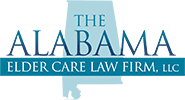
A geriatric case manager (GCM) is a social worker or licensed nurse specially trained in various fields of human services. GCMs have the experience to assess, plan, coordinate, monitor, and provide services for elderly clients and their family or caregivers. A GCM develops a plan of care based on identified needs, by performing an assessment of an elderly client’s home environment and available resources. Once there is a plan in place, they coordinate and monitor services to ensure the elderly client is maximizing these services. There are many benefits to hiring a GCM for elderly clients.
The services of a GCM are best utilized before they are needed, without the pressure of trying to locate a GCM during an emergency situation. To select the best GCM, interviewing can be a valuable tool to ensure the right person is hired to meet the clients’ needs now and going forward. Planning for potential future needs can establish a plan of care prior to a future event.
A GCM can assist with education regarding legal matters, ensuring the client’s wishes are known to healthcare workers and family or caregivers, while utilizing open communication and providing ongoing support. For clients requiring around the clock caregiving services, GCMs can assist with planning for respite care services or transition the client into a facility that can provide the appropriate level of care (such as assisted living or a long-term care facility).
5 Reasons to Hire a Geriatric Case Manager
1. Legal Assistance
GCMs are an excellent resource for navigating legal matters such as power of attorney, a living will, and/or advanced directives, as well as understanding what each document means for the client. An elderly client who is of sound mind would benefit from having these documents in place. This would ensure the family is aware of what the client would want when the client is unable to make decisions. Another consideration is choosing who they would want to speak for themselves. A lawyer can assist with these legal forms to ensure they are specific to your state. The Alabama Elder Care Law Firm states, “All adults should discuss advance directives and POAs with a qualified elder care law attorney and involve their close family members in those discussions.”
2. Coordinate Care
Elderly clients can have a variety of healthcare providers on a team of support people that “have a common goal of providing the best care on their behalf.” A GCM can assist clients in navigating the complex world of healthcare and provide assistance for clients without close family members or someone to check in on them. A GCM can give regular updates to family members that are close or far away. They can also be a buffer between the client and their family in tense situations such as “when the parents and children don’t talk nicely to one another, or the parent won’t listen to the children but may listen to an impartial outsider.”
3. Locate Community Resources
Elderly clients may need a variety of different community resources, depending on their condition, ability to perform activities of daily living, and how much access they have available in their area. GCMs can help locate cost-effective resources to keep a client in their home with services such as durable medical equipment, housekeeping, food delivery, medication management, and rehabilitative therapies. There are numerous resources in the community for supporting the elderly, but not all are paid for by insurance or Medicare.
4. Obtain Respite Care Services
Respite care is utilized to provide caregivers a break from caregiving. Respite care can ease the caregiver burnout that often occurs when caregivers focus on their loved one without taking time to care for themselves. Respite care can be as little as a few hours a day to several days at a time and can be provided in the home, at a facility, or at an adult day care center.
5. Assist with Facility Transitions
It can be challenging to know what the next steps are when being home alone is no longer an option for a client. Navigating assisted living facilities or other long-term care arrangements may need to be considered when the elderly client is no longer able to care for themselves. For example, a client with progressive Alzheimer’s disease or other dementias may need more support in a facility that specializes in dementia care. Safety is important for these clients, as wandering can be a concern. Clients with dementia who are not safely monitored may leave the house and end up lost. Appropriate dementia facilities are trained experts in the care of elderly patients with memory problems.
Navigating the healthcare system can be overwhelming when caring for an elderly loved one. The GCM can assist with this navigation based on the elderly client’s needs. A GCM can be a useful resource for supporting elderly clients regarding legal matters, bringing together the care team, finding cost effective resources, providing a break from caregiving, or finding long-term care options.
Author:
Melissa Davenport, RN
Melissa has been a RN for 25 years practicing in hemodialysis, case management and working as a charge and MDS nurse in skilled nursing facilities.
